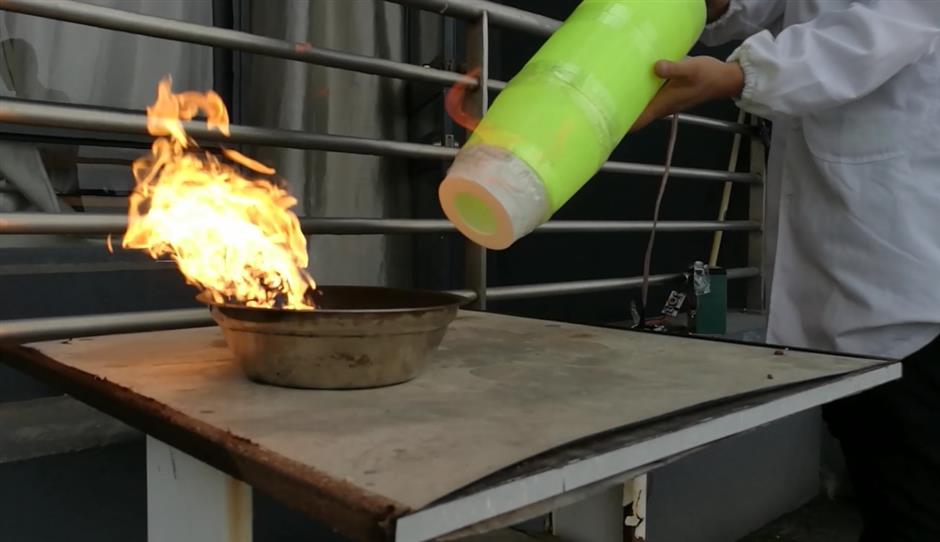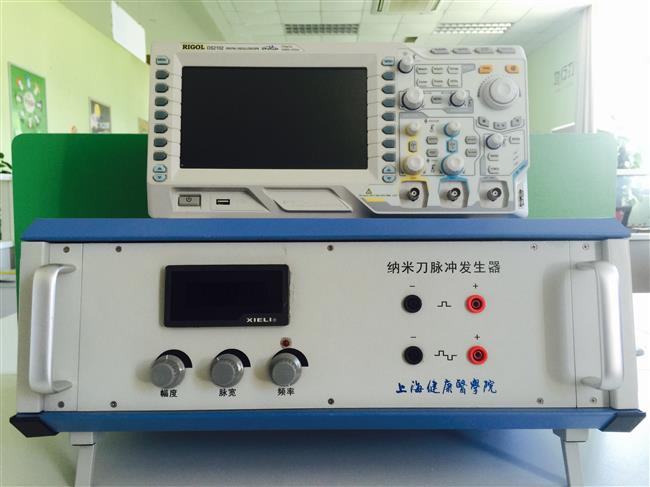Shanghai students get creative with pioneering innovation programs in start-up competition
Several local university students have scooped top prizes in a recent start-up competition in the theme of Internet plus.
The event attracted more than 15,000 students from over 70 local colleges, more than double than last year’s participants.
Twenty-four programs entered the Shanghai final, which saw eight triumphant programs emerge from the testing group. They now go on to represent Shanghai against other students from all over the country in the national final next month.
Judges acknowledged they were impressed by the standard of the competitors and their innovation programs, which covered various categories, such as modern agriculture, information technology and manufacturing. All university students revealed a sense of social responsibility to make life better for people.
“The students were very creative,” said Zhang Rui, CEO of Universal Education Group, and one of the judges of the competition. “Some programs are closely related to our daily life, such as the training service for square dance, the non-invasive glucose meter, as well as some combining traditional industries with latest technologies, including cloud computing, big data and the Internet of things.”

The sonic fire extinguisher uses sound waves, instead of dry powder, foam or water.
One of the top award winning programs was the brainwork of a postgraduate group at Donghua University who developed a fire extinguisher using sound waves, instead of dry powder, foam or water.
Users only have to aim at the fire, press on the button and the device would release a beam of agminated sound wave to put out the fire in seconds.
The fire extinguisher costs around 400 yuan (US$60), a little bit more expensive than a traditional one, but it is safer and cleaner, the students claim.
“It’s powered by electricity and would not cause pollution or damage to the environment as a traditional fire extinguisher would do,” said Lu Hao, the main inventor of the sonic fire extinguisher. “Furthermore, the sound frequency is between 55 and 65 hertz, so it is harmless to human beings.”
Lu says their product is especially suitable for extinguishing fires in enclosed small spaces or where valuable items are kept. It can also be used for promoting fire-extinguishing education.
The team has applied for patents for their inventions and they have won several awards in other competitions.
Lu revealed they are now continuing research on the product to make it more powerful.
Zhu Wenbin, a graduate from Donghua University, presented his towels that could tell people whether they were clean or dirty by the changing colors of the patterns on them.
Zhu made it known that he developed some smart-echo technology to use alga extract on textiles, such as towels.
When the textiles are tainted by pollutants, like grease, sweat and bacterial metabolites, the strips or other patterns with alga extract would change color from blue to pink, reminding users to clean them or change new ones. And when the pollutants are washed up, the color would return to blue.
Zhu believes his products could help people develop a healthy habit in using towels.
He has opened a company called Planto Life and the towels are selling well up to now.
A towel for an adult is priced at 59 yuan each, much more expensive than ordinary towels. But he is confident his product will be popular as Chinese people are increasing concern about their health and quality of life.
He said he has begun cooperating with some American partners to bring Planto Life products to America. Zhu is also researching to develop bed sheets and underwear with the same technology. The global sales volume of all his products is estimated to reach 7 million yuan in the first year.
Students from Shanghai University of Medicine and Health Sciences were in the prizes with a machine that uses a nano knife to kill cancer, which they claim is safer and cheaper than imported machines.
It adopts an irreversible electroporation technology, releasing a high voltage pulse to punch a hole on cytomembrane of cancer cells so that the cells would die quickly. It is especially helpful in curing cancers that could not be cut off simply, such as those close to great vessels.
“America is the only country that can produce a machine with the same cancer ablation technique now,” said Shen Jiayi, one of the group members. “But the American product is so expensive that each machine costs several million yuan. Our product costs only 150,000 yuan.”
The product is now going through clinical tests in local hospitals.

A machine that uses a nano knife to kill cancer is designed by students from Shanghai University of Medicine and Health Sciences.
Medical industry was a popular area in the competition and four of the top eight prize winners came from that category.
Besides the nano knife, a non-invasive glucose meter also aroused judges’ attention and the product is expected to benefit from the huge number of diabetes patients around the world.
As diabetes becomes a common disease, the demand for a glucose meter also increases. It is estimated that the market share of blood glucose testing in China reached 140 billion yuan a year, a 10 percent increase in annual growth.
While the traditional glucose meters cause wounds and infection risk to patients, the product presented by Shanghai University for Science and Technology uses infrared spectroscopy to analyze the blood. So users no longer have to puncture their fingers to drop blood on test papers. Instead, they only have to put their fingers in the device, shaped like a clamp, and the result would come out without wound.
Meanwhile, the device is reusable, which means low cost for users. It is priced at 3,580 yuan, compared to imported ones from the United States which cost US$2,000 each.

Intelligent towels, which can tell cleanliness, are designed by Zhu Wenbin















